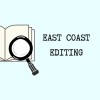Trouble With SEMICOLONS!
For years, semicolons have been my enemy...I fear using them wrong. I fear not using them when they may improve a sentence. I need to know because I don't want my work to be rejected when submitting to editors.
Is this semicolon (and colon) needed in this sentence or is it optional? "Other primary functions fat serves include: nutrient absorption of the fat-soluble vitamins A, D, E and K; insulation for the body, and energy production for the body."
Or
"Other primary functions fat serves include: nutrient absorption of the fat-soluble vitamins A, D, E and K, insulation for the body, and energy production for the body."David, I hate using semicolons. In truth, you never have to use one if you do not want to. Any sentence you write with a semicolon could function just fine without it. Also the definition you pulled from online is really vague. Semicolons are best used to separate sub-ideas all relating to the same bigger idea in one sentence. In other words, all of the items go together, but require punctuation other than a comma or period.
To address the comma before and/or, you are not wrong either way. No matter what anyone tells you, you can add the comma or forego it. It's called the Oxford comma, and scholars have been arguing about this one forever. Personally, I always add the comma because it shows inclusion and continuity in a list. If you do not add that comma, it may leave room for readers to interpret the items before and after the and/or as a phrase describing the first item in the list.David:
Forget the colon completely and just use commas between your items.David,
You can replace the semicolon with a period.
Your example:
"Other primary functions fat serves include: Nutrient absorption of the fat-soluble vitamins A, D, E and K. They are also insulation for the body, and energy production for the body."
You will notice that I added three words to the second line to make it a complete sentence.English teacher here. I would leave out the comma and use a semi-colon after "body." You were correct in separating your series of items with a semicolon since you have several other internal commas. However, you have to do it in place of both commas. Also, it is okay, but not necessary to use the colon to introduce your list. Usually, you only use the colon if the beginning part says "... include the following: " or "...include these: ." Hope that helps.
I'm probably not as good with this as some people on here but I think example B works best. Also I don't think you need the comma after 'body'. Either way though it's only minor and would not cause your work to be rejected. Others may know better than me though.
I have seen some types of writing where comma is dropped before and (in a list) & other types of writing where it is always placed. I remember in college, my teacher said not to use comma before "and" when using list of items -- said something about it being improper or something. Another teacher said opposite...
Writing seems rather subjective sometimes...Some aspects are inherently wrong, inherently right, or optional depending on circumstance(s).
Some websites do not like the use of "however" at start of sentence, while other websites (companies etc.) embrace it..Yes, sometimes a comma before 'and' works but mostly it doesn't. I don't know the exact rules but I just go by how it looks and sounds when I read it out. I also think you can use 'however' to start a sentence in some circumstances. Same with 'and' and 'but'.
First of all, what you are showing is a colon, not a semicolon. You do not need the colon or a semicolon in the sentence. A colon is two dots, one above the other, and a semicolon is a dot and a comma with the dot above the comma.
Neither one of these are good uses of them. I would avoid them entirely, If you need to express a new idea start a sentence. I would write the above sentence as
"Other primary functions fat serves include nutrient absorption of fat-soluble vitamins (A, D, E and K), insulation for the body, and energy production for the body."
With a little thought you can almost always get around them. It is rare that I see them used correctly. I finally had to sit down with someone I knew that knows how to properly use colons and semicolons to get a full explanation and we worked out LOTS of examples, I still goof it up.I actually was going to write the sentence like you did. I could obviously change it to that.
You say they are not good. Do you mean they are wrong? Or merely not utilized "optimally?" Some articles I read usually avoid semicolons or use them sparingly. However, I have seen some articles that use semicolins with abundance.
SEMICOLONS ARE THE DEVIL
Cassandra Cae:
That is exactly correct and is basically what I told David would be best.
I used to be an English teacher.
Related Discussions
- 64
Writing: Placing Commas
by David Patrick 9 years ago
Although I have got several articles accepted by Constant Content (and 1-2 other strict websites), I am still not 100% confident in my work sometimes when it involves comma usage. For example, sometimes I write sentences that are longer than average, which makes it difficult for me to discern...
- 19
Is it grammatically correct placing comma after the word and?
by astigpinoy16 13 years ago
Hello guys!I just want to ask something, as you can see on my subject of my topic, I am confused when to put comma after the word "and"? I have read hubs about how to use comma, but some time I see sentences where comma is preceded by the word and.I know how to use comma like: use a comma...
- 13
Please someone proof read and point out any spelling/grammar issues
by Kari Poulsen 6 years ago
Would someone mind reading through my article. I need a second set of eyes to look for any spelling or grammar issues I may have missed. Thank you in advance. https://hubpages.com/relationships/20-W … hes-a-Lady
- 45
Should I use i or I
by Ghaelach 12 years ago
At the beginning of a sentence it's quite clear we use a capital letter (ie.I), but in the middle of a sentnce do I use the small i when it's on it's own (i) or do I use it's larger brother the capital (I)?? also when I break a sentence with a comma (,) is it correct to use "and" after...
- 3
How to use a semi-colon and how to use a colon?
by Bluehoop 13 years ago
How to use a semi-colon and how to use a colon?
- 8
Punctuation rules: the colon
by Bev G 4 years ago
A colon can completely change the meaning of a sentence.For example: Jane ate her friend's sandwich.Vs Jane ate her friend's colon.














